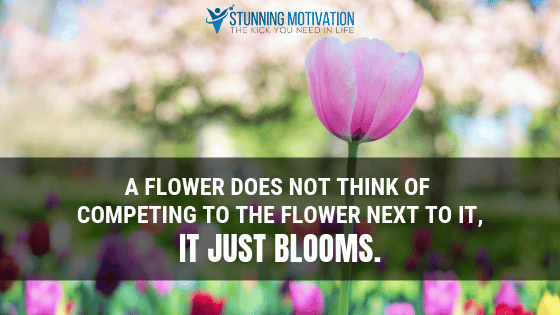Imagine you have just started a new job, or moved to a new place, or took on a new project, or set a new goal that you were eager to start. Everything feels good in the beginning, but after diving deeper into the process, you discovered that you are so overloaded with assignments, tasks, and a long list of things to do. You feel the stress and eventually, you become dejected and find it hard to maintain your motivation. Does this sound familiar?
Regardless of whether you are a student or a working adult, you need to learn how to manage your stress in order to perform better at what you do. Handling your stress and at the same time, maintaining your motivation is extremely important if you want to achieve great success in life.
You have to find ways to make things work. You can’t your stress to hold you back or get you down.
For instance, if you are a student and find it hard to tackle all the subjects at once, you can consider getting help on your assignments from websites such as essayontime.com.au. Or if you are working on your own business, looking for a mentor will help too.
When you’re feeling stress, you will feel stuck and get nowhere. You need someone or an enlightening moment to get out of the rut. You need a pointer. And you need help.
In this article, I’m going to share with you a couple of ways how you can maintain your motivation when you’re feeling stressed.
It may not be easy, but learning these techniques to overcome your stress is a good start…
1. Stop hating yourself
One of the greatest obstacles to finding motivation is your ever-present inner critic. Stress develops from within. It is your own thinking and emotion that causes you to feel stress.
Hence, the first step you should do is to stop your inner critic. Don’t criticize yourself and don’t use abusive words on yourself. When you:
- Don’t understand a subject,
- Find it hard to find the work-life balance,
- Feeling overwhelmed and not sure where to start,
- Feel incompetent and inferior,
- Etc.
Just stop. Don’t criticize yourself and stop negatively labeling yourself.
You see, the moment you feel stress and your motivation suffer, there is a reason behind.
When you don’t know how to do something and you feel overwhelmed, it’s normal. It happens to everyone. No one was born a master. Every master was once a beginner. You need to learn.
When you feel stressed because you have too much work to do, get a rest. You need to strike a balance between your work and your life.
And why do you feel incompetent or inferior? Is it because you are new? Or perhaps you are doing things in ineffective ways.
There is a reason why you feel stress. Find it. Find the root causes and get rid of them.
Now you have to stop berating yourself and instead see how many great things you have achieved so far. If you have done so much already – surely you would have a solution to the problem at hand as well.
Here’s what you can do:
First, stop hating or labeling yourself because doing so will not help you one bit. Next, acknowledge your progress and how far you have come by adopting the Reverse Gap Thinking.
2. Disconnect yourself

Berating yourself staring at the laptop or the library textbook would not mitigate any anxiety.
Quite the opposite – it would increase it. Instead, go out, even for 30 minutes. Go somewhere green if the season allows. Just sit on the bench and relax.
Treat yourself to a healthy, tasty meal. Do not become a tank for coffee and fast food – choose the healthiest options you can afford.
Try to exercise – even dancing to your favorite playlist would do. Try to get as much sleep as possible. All these are excellent ways to get some energy.
Jack Ma, the founder of Alibaba once said that when he feels stressed and overwhelmed or when he encounters problems that he has no solutions, he would take a nap. After a power nap, he feels energized and is more ready to tackle the problems at hand.
You can do the same by treating yourself better. You need to disconnect yourself from the situation.
Just like if you are lost in the forest, the best way to find a clear direction is to get to the higher ground so that you can see the big picture from above.
The same goes for overcoming your stress. Take a breather. Go above ground and take a look at the big picture. And the solution will come.
Here’s what you can do:
Treat yourself better and try to get away from the problem temporarily. You want your subconscious mind to work on the problem while you are focusing on something else. Take a power nap, go for a walk, talk to someone else, listen to music, exercise, etc. Do something that is not really related and let your subconscious mind works its magic.
3. Ask for help
If you have assignment problems – go for help instead of moping. Ask a fellow student or ask your teacher for pointers.
If you encounter problems in your business – seek help from others who are doing much better than you.
If you are feeling stress because you have poured in months of effort into your blog but are not getting the result you want, ask the experts. Find out what other bloggers are doing and get help from them.
The key is to find out who have overcome the situation that you are in and seek their advice.
Getting help is the fastest way to solve your problem. Plus, it also helps shortcut your learning curve so that you get to your goals faster.
Do you know that reading and learning is also part of seeking help? This is why most successful people are avid readers. They read a lot. They know that the more that they read, the more that they will learn. The more they learn, the better they become.
Imagine you are playing games and your character is at level 3. When you face a level 5 enemy, it may seem like a difficult battle. Now, if you increase your character’s level to level 8, a level 5 enemy is not a problem for you at all.
This is why you must constantly improving and raising your own standards.
When you become better, stronger, and wise, stress will automatically dissipate. Like what Jim Rohn said:
“Don’t wish it were easier, wish you were better.”
Here’s what you can do:
Ask for help. You can’t grow if you stay stick to what you know because what you know gets you exactly where you are. So you need to get away from your comfort zone and do something else. And the best way for this is to read, learn, and seek help from others.
4. Do a brain dump
Achieving your goals can be tough at times. Instead of mentally turning over the considerable amount of plans for the next week – write it all down.
Make a clear picture of what is due when. While you are at it – note down how much time would you require for each particular problem, and which tasks are more important.
It is surprising how having it all on paper, with deadlines and priorities can help with stressing over the nearest future. Keeping it all in the head just makes you more anxious, not more efficient.
Some people refer to this technique as a brain dump. You simply write down all the things that you have in your mind. All the tasks that you need to do and by when.
When you list down all your tasks, it gives you a clear sense of what is important, what you should put off, and what you should do right now.
A brain dump is a powerful technique to use especially when you are feeling overwhelmed and have no idea where to start.
Here’s what you can do:
Whenever you feel stress, take out a piece of paper and write down everything in your head. Your worries, your feelings, your thoughts, whatever. Everything that goes into your head, write them down. It clears away your stress and gives you something to focus on.
5. Divide and conquer

You now have a nice plan for tasks. Work through it. See what you can let go of completely. The irreplaceable once can also be dealt with efficiently.
Divide each complex, time-consuming project into smaller ones, and tick each off each stage one by one.
It is much easier to wake up to the future with a pair or two of smaller tasks instead of multiple complex ones. Also, remember several important things:
- It is not necessary to do everything at once. Working in steps is good and efficient;
- Undertaking one or two smaller projects and completing them well and within the deadlines is far better than completing several ones in a hurry;
- Do not forget – each task well done is a reason for self-praise!
The key to implementing here is to divide and conquer. You feel no motivation to act and are stressful because you are trying to do everything all at once.
Rome was not built in a day. You have to divide your big goal into smaller, actionable tasks.
Plus, you want to focus on one thing at a time. If you try to tackle everything all together, it makes you feel stressed.
Here’s what you can do:
List down all the things you need to get done. You can approach it like creating a to-do list. And then just break down your tasks into even smaller and actionable steps. This way, it gives you clarity of what you can do.
6. Learn to say “No”
One of the most common causes of stress is having too much to do and too little time to do it. And often, this is due to because you are trying to accept too much responsibility.
Sometimes, you must learn to say no. You must reject others in order to get your work done, to do better, and to deliver quality work. This is especially true when you need to get the menial and unimportant work done. Saying no helps a lot.
Most people try to be nice with others, which is the reason they find it hard to reject others. When you reject others, you may feel the conflict and the missed opportunity, but focusing what is important on your hand right now should be your priority.
Actually, you don’t have to fully reject someone. You can reschedule or put the task or the offer to a later time.
For instance, you can say, “Now is not a good time as I’m in the middle of something. Why don’t you ask me again at….?”
And sometimes you don’t have to reject completely, you can refer someone else who can help instead of doing it yourself.
Here’s what you can do:
Focus on your own priority. Accomplish your most important work and achieve your objectives before you go out and help someone else. More importantly, learn to say no politely so that you can get more done.
7. Stop the unnecessary comparison

You don’t see a bird feeling stress, right? The reason is simple – birds don’t compare themselves with others.
Humans, on the other hand, are easily feeling stressed because they love to compare themselves to others. This is why they feel stress because they think that they are not good enough when they compare.
You don’t have to compare yourself with others. You just need to compare yourself with yesterday. As long as you are making progress and are getting closer toward your goals, you are doing good enough.
Don’t feel stress when you see your colleagues doing better than you. Don’t feel stress when you see your friend buys a new car or having a vacation somewhere else.
You just need to be yourself and compare your own life with your yesterday.
Bill Gates says it wisely:
“Don’t compare yourself with anyone in this world. If you do so, you are insulting yourself.”
Here’s what you can do:
Do not compare with others. When you see someone driving a better car than you or doing much better than you in life, bless him or her. The more you celebrate and bless other people’s success, the more you will have it in your life.
8. Change your environment
Sometimes, you’re feeling stressed and have no motivation to work because you are feeling stuck in the same old environment. You need to make a change.
In my case, I can’t face my computer the entire day. After I work in front of my computer for a few hours, I feel stressful and difficult to concentrate. I will distract myself instead of focusing on my work.
So what I’ll do is changing my environment. I change my environment. I will bring my laptop and work somewhere else.
You can categorize your workstation. For example, use your table for creative work like writing articles. And use the standing table for other works like updating social media and creating marketing campaigns for your website.
When you change your environment, you change your mood. You relieve your stress too.
Here’s what you can do:
Change your environment when you’re feeling stress and feel the lack of motivation. A new environment gives you the freshness and it allows you to better focus on your work.
Conclusion
Maintaining your level of motivation when you’re feeling stressed is easier said than done. This is because when you are feeling stressed and frustrated, it is difficult to get out of that mindset and get into a new state.
However, follow these methods above and try your best to get rid of your stress and continue to feel motivated.
So what do you do when you feel stress?













Very important